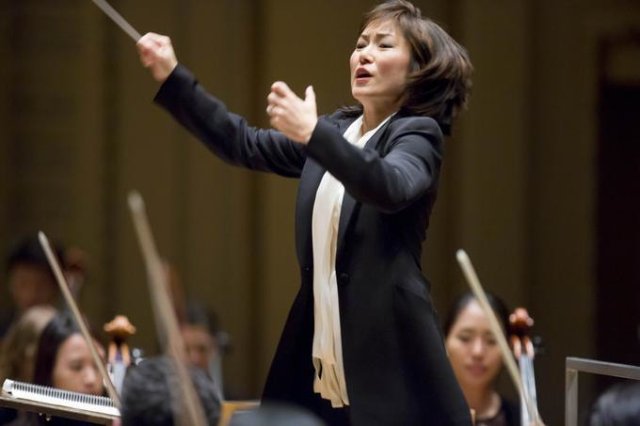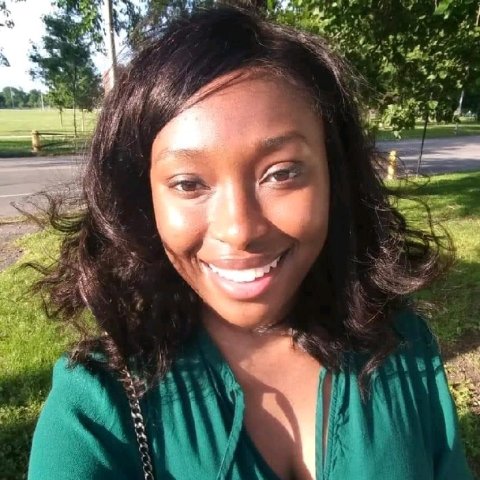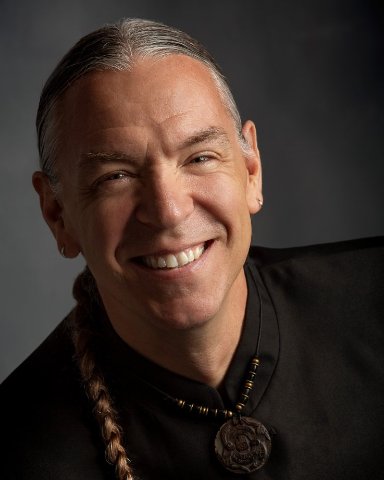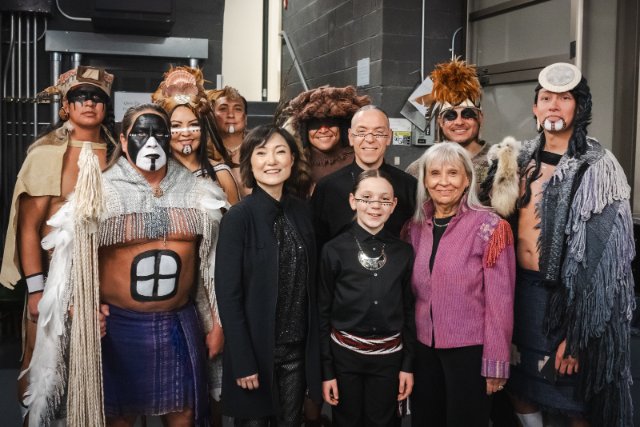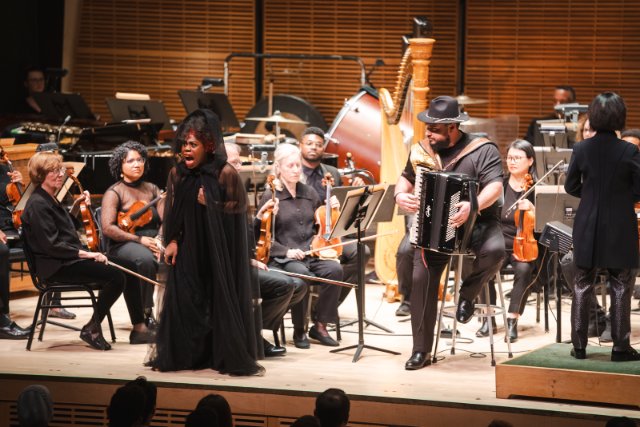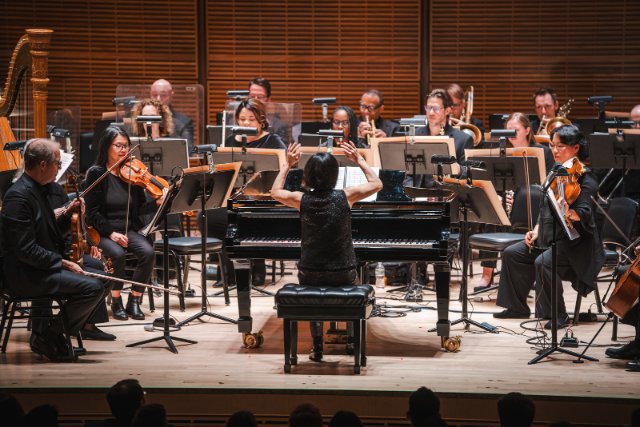American Composers Orchestra at Carnegie
Continuingto look at weimar and its Repercussions
By: Susan Hall - Mar 15, 2024
The American Composers Orchestra joined Carnegie Hall’s musical exploration of the Weimar Republic. Central to the evening’s presentation were two pieces: One, ‘Pirate Jenny’ from Kurt Weill and Bertolt Brecht’s Threepenny Opera. The other ‘Clans’ from Lowok Shoppola of the Chickasaw Nation in Oklahoma. Martin Scorsese's The Killer of the Flower Moon was a recent deep dive into Oklahoma’s Osage tribe. The question raised today and during the Weimar period is the same question the Indians ask: How do we maintain identity in times of pain and turmoil.
Weill was a central figure at the height of Weimar art, meeting Bertolt Brecht in a cafe and then working with him for four years before Weill and his wife, the singing actress Lotte Lenya, departed for the US. Weill is a bridging figure. In New York, ThreePenny Opera was embedded at Theatre de Lys for years. Lotte Lenya would sing in this production.
Music is considered central to German culture and identity, perhaps more so than any other country. In Weimar music, we often see composers looking to the past and bringing it forward in unexpected ways.
No one took a more daring approach than Weill. He wanted to bring opera to the masses. He thought that new musical forms could be joined with new language to energize the form. He found language in Brecht's work: harsh and political. As a matter of fact, he decided to create often sweet music against Brecht’s texture. Producers quickly saw houses fill. Spa town Baden Baden started the trend. Berlin soon followed.
Zankel Hall at Carnegie turned into a cabaret as Chrystal E. Williams paraded on stage and in the parquet belting and caressing ‘Pirate Jenny.’ Her big beautiful voice is quite different from Lenya’s. Yet Williams has said her business is to give voice to the voiceless. Jenny is scrubbing floors like Nicole Kidman in The Human Stain. Janitresses are seldom the focus of opera. Yet Weill and Brecht were artists of the people and embraced them. In the contemporary world, we have come to see all too clearly that populism is a two-way street.
Jerod Impichchaachaaha Tate is a composer from the Chickasaw nation. His work crosses over, lofting the rhythms and tones of this Indian tribe into classical forms we readily recognize. He unifies in a special way, reaching out through the poetry of another Chickasaw, Linda Hogan, to make revelatory music. Clans are identified by animals, and a tribal leader stood on stage as actors scattered through the audience representing a panther, a raccoon and a skunk.
The evening included shorter works. It was easy to see why George Antheil’s jazzy rhythms captured the ears of European composers. Duke Ellington’s ‘Sophisticated Lady’ had been performed in Weimar Berlin and got a rip-roaring outing with the ACO. John Glover and Kelley Rourke joined forces in Right Now which related to Weill. Tonio Ko’s Her Land presented the current economic and political forces which tragically look like a lesson-not-learned from Weimar. The sense of responsiveness to community is on an upswing in the US. Rei Hotoda conducted the ACO Orchestra, bringing out hidden details and swooping lines. She does this at home with the Fresno Philharmonic.
Carnegie Hall offers a wide variety of Weimar moments. Look for Tiergarten, a special off-site cabaret speakeasy, April 17-20.

